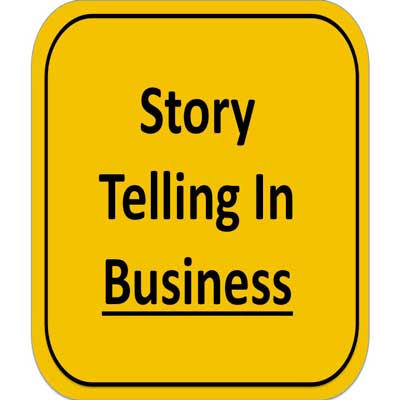Whether it’s your customers, an audience, or employees – influence is the key to creating change and the lasting impact you desire in your work.
What comes to mind when you think of Ronald Reagan, Abraham Lincoln, and President Barack Obama? What did they have in common besides presidency? Well, they were all known as excellent speakers and story-tellers, which made them influential leaders.
Stories that are told the correct way will make you and your speech more impressive, persuasive and charismatic. These are traits we admire in leaders.
For decades, stories have been used by every culture in the world to pass on principles and values to the next generation. If you look around, they’re used all over! In speeches, movies, books, art, classes, and – you may even remember those classic bedtime stories.
Importance of Storytelling in Business
The best speakers know that the secret to a killer speech is the artful use of storytelling. They spread ideas, create open minds, enhance creativity, help overcome challenges, and most importantly, connect individuals on a deeper emotional level.
There is a reason why experts say, “facts tell and stories sell” –
If you don’t directly sell products or services, you still sell yourself and ideas.
Now, you may be saying to yourself “I’m not the storytelling type” or “this won’t work for me.” When really, all you need to do is practice and know which stories to tell.
So, which stories should you know? We’ve created seven stories every professional must know how to tell to have maximum impact on an audience and everyday work:
The Seven Business Stories You Must Know How To Tell
1) Your story – Establishes your credibility and a bond with your audience before diving into your
2) Your company’s story – The story that tells how your company got started (Great for conferences
3) Customer/client stories – Highly effective method to not seem pushy about your products/services.
4) Objection destroyer stories – Useful when seeking buy-in from teams and customers.
5) Study story – Makes scientific studies, data, and numbers more engaging and memorable.
6) Teaching stories – Used to teach listeners lessons and leaves them with lasting points.
7) Inspiring stories – Perfect for inspiring and motivating your audience to take action.
Tips To Become A Story Collector and Storyteller
You can start by gathering emails, written testimonials, and stories from past experiences that would be relevant to your target audience.
Next, type the stories on your computer or log them in a safe notebook. Then, find ways to use them as soon as possible and continue to collect stories as you go about your work. Never stop collecting because you never know when you will capture a good story to use.
If you do, then you will be seen as a more authentic speaker who knows how to connect with your audience’s head and heart.As the founder of MagneticSpeaking, I’ve been researching and studying influence for the past ten years, and one of the best and most effective influence tools I’ve encountered is by far: Storytelling.
Start using storytelling in business today, and you will too have access to this ultimate tool of influence.



